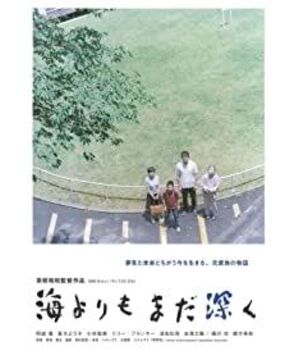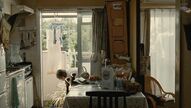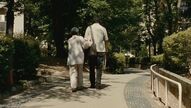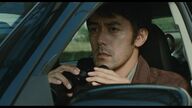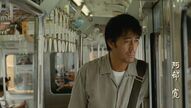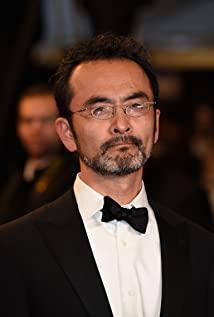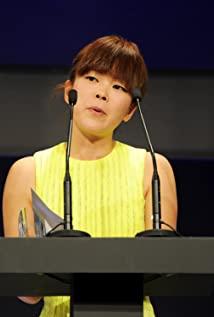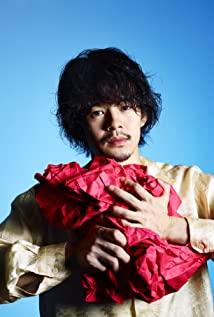Many self-proclaimed writers are pure literary novelists, and he also has such expectations for himself, but his literary achievements are limited to winning a new literary award more than ten years ago. Since then, he has not written any works, but has lived a life a mess. Divorced from his wife, he couldn't afford to pay 50,000 yen per month for alimony; he worked in a private detective agency in the name of creation, and finally got some commission fees, but he wanted to use this little money to make a comeback in the casino. The result was a complete loss; every time he went to his mother's house to rummage through the boxes, either stealing things or trying to steal money, and pawning some relics left by his father to live... He stubbornly believed that all this was necessary to realize his dream of being a writer. Lu, when he was young, he kept telling himself not to follow the old path of the gambler's father, but he followed in his father's footsteps every step of the way.
There are many middle-aged people, so tall, but still immature in thinking, behavior and behavior. He is not only like the frustrated writer Max in "Life with a Cup of Wine", but also like "Little Miss Sunshine". The down-and-out uncle who studied Proust in China was, in a word, innocent and cute and a little childish. The mother couldn't help but nag, "No matter how old you are, you need someone to accompany him." Even though his ex-wife still has feelings for him, she still bluntly said that he is not suitable for forming a family. Maybe it's because of this childishness that he doesn't seem so annoying, because he is always sincere to people and things, and he never hides his dreams, cowardice and love, just like stealing things from home while tightening his belt. Give the mother pocket money; see her son once a month, always doing her best to satisfy all her wishes.
The main line of the movie takes place on the day when I see my son every month. Suddenly, a typhoon blows and it is inconvenient to go home separately. The family of three is able to reunite at the mother's residence. There is a typhoon outside, and the family is crowded in the hut to make noodles and chat. This is a rare moment of warmth. Many people and their ex-wives have feelings for each other, but the ex-wife said, "If you want to be a good father so much, why not when you are together?" The mother, who usually seems cheerful, carefully persuaded the ex-wife to remarry, but the ex-wife also declined. Even though the three of them tied each other's dreams tightly because of a lottery ticket - because the son said he won the lottery, he built a big house and lived together again as a family, even though many of them re-sold their father's relics the next morning. The shop owner knew that his father was so proud of himself, but nothing changed. The next morning, after the rain passed, the family of three separated at the station, and the wife and son left without looking back.
The movie ended here, as if nothing happened. Judging from the film's cast and the structure of the story, "Deeper Than the Sea" is like a companion piece to Hirokazu Kore-eda's 2008 work "Walking On". "Non-Stop" focuses on a day in a family, telling us the regret that life is never in sync, the relationship between father and son, always he is one step ahead, you are slow - too late to communicate, too late to understand you, too late to say love you , so bumps and bumps are not without regrets through a lifetime. "Deeper than the Sea" also tells the regrets of life: we may not be the person we want to be, we may miss the love in front of us, and we may never love someone deeper than the sea.
But so what? Keep walking, no matter how frustrated your life is, you have to go step by step. Ordinary people often encounter various disappointing moments, but as many mothers said, "But everyone still lives happily every day, and life is still very simple." Many understand their father's sustenance, and the son also rebuilds his dream with a lot of encouragement. The frustrated life does not seem to have changed, but the changes are always contained in this frustrated life.
There are hardly many such frustrated people in domestic movies. What we are keen on is the story of Diaosi's counterattack. The disappointed people will have a big reunion in the end: make a lot of money, hold beautiful women, and get angry. But Hirokazu Kore-eda's lens may be closer to the essence of life. There has never been any sudden reunion, no warm man or Virgin without reason. Life is full of imperfect corner details, but its preciousness is also that, The love of the world and the philosophy of life that slowly emerge from the bumpy little obstacles. We always have to move forward while regretting. In the open and unknown future, as long as we keep walking, it means that we are embracing new possibilities. .
——First Jiefang Daily/Chaohua Shiwen——
View more about After the Storm reviews


